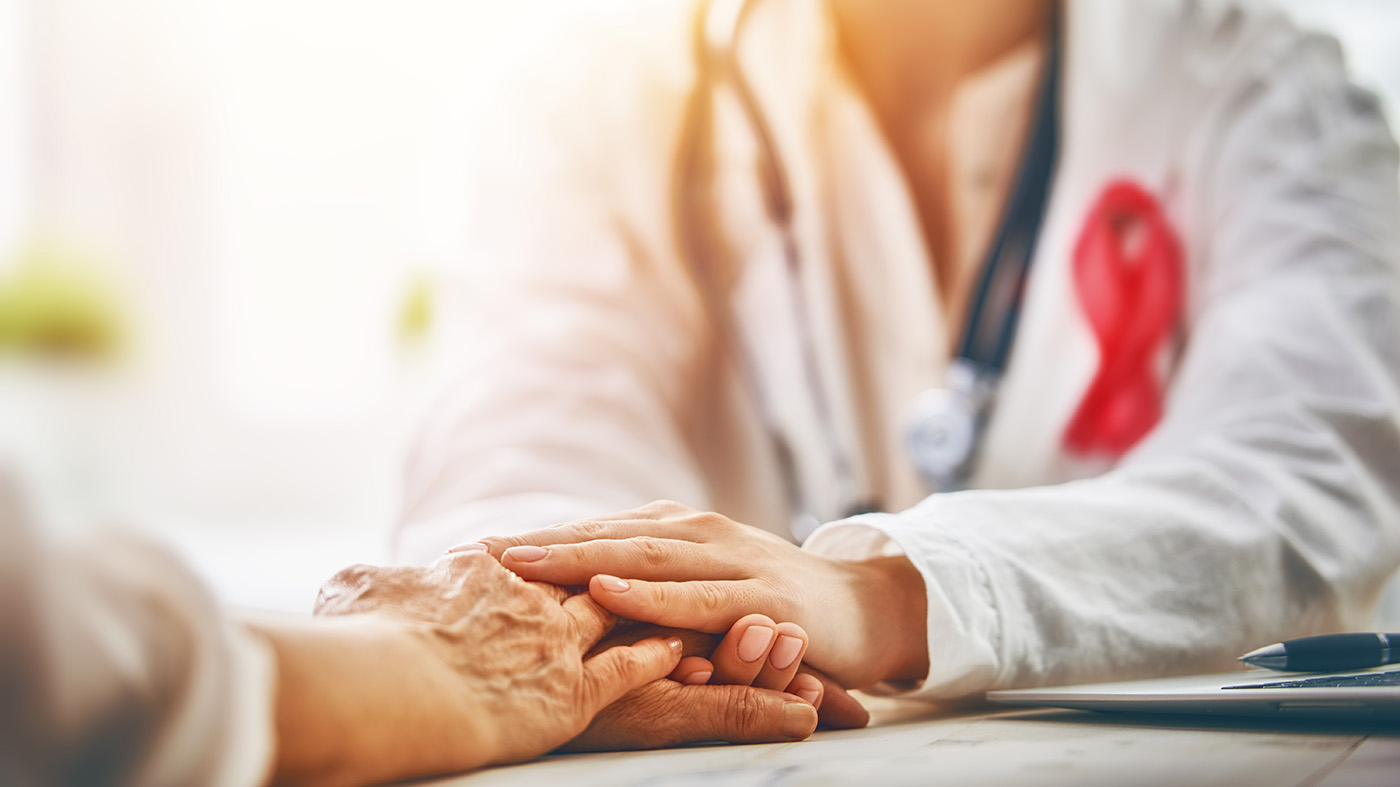Tanya Holland hopes her breast cancer story will inspire women to get their mammograms.
Her journey in the Navy began in 1991 when she served on the crash and rescue team in Guantanamo Bay. Her service included time stationed on the USS Hunley submarine and several years in Cuba.
Seeking “excitement and adventure,” Holland thrived at sea and “loved working with people of all ages, from all walks of life.”
Breast cancer diagnosis: A turning point in care
Several years later, her journey took an emotional and uncertain turn when a routine mammogram revealed concerning abnormalities in her breast, launching her into a new mission to save her life.
“I’ve had numerous mammograms since I started getting them at 40. I almost missed this one due to a work conflict. Within a week, I received a call from my doctor advising me to go to Miami VA for more in-depth 3D imaging. That’s when they found the cancer,” she shared.
Soon after receiving the diagnosis, Holland’s doctor moved swiftly. Within two months, she underwent both a lumpectomy and mastectomy. “When I got the diagnosis, I was shocked. I felt completely normal aside from some mild fatigue. My doctor didn’t waste any time and got me in for surgery as fast as possible to remove the cancer.”
When discussing why she chose VA for her cancer care, Holland explained, “Because my providers were so fast and attentive, I knew I didn’t need to go to other clinics for other opinions.”
Genetic testing: A multidisciplinary approach
Nearly one month later, after surgery, Holland’s doctor recommended genetic testing through VA’s National Precision Oncology Program (NPOP) to help guide treatment decisions and identify potential risks for other types of cancers. NPOP provides state-of-the-art molecular and germline genetic testing options to support Veterans with cancer for improved clinical care.
The program leverages cutting-edge technology and genomic sequencing techniques to provide personalized, precise care for Veterans with cancer and can lead to improved outcomes and quality of life.
Holland’s testing results showed she carries a CHEK2 deleterious genetic mutation, which can mean an increased risk of cancers including breast and colorectal cancer.
VA’s oncology team helped Holland develop a personalized plan, incorporating various treatment and preventative options and testing recommendations to minimize the risk of cancer recurrence, as well as reduce the incidence of new cancers during her lifetime.
Based on discussions with her multidisciplinary team, she received chemotherapy and decided to undergo a mastectomy. Her dedicated care team also recommended that she undergo colorectal screening.
“I want Veterans with cancer to know they are receiving the most advanced testing and effective treatments. Patients need information and a multidisciplinary approach to cancer care [that] streamlines the process and addresses factors effectively and efficiently while keeping the patient at the center of care,” said Dr. Shruti Chopra Trehan, VA oncologist.
Inspiring others
“My team has guided me through every step of the process. It’s exhausting and challenging, but the experience has been seamless. Everyone has been very accommodating. It’s incredibly comforting having them on my side and knowing my team is always there for me,” Holland said.
As Holland prepares for her final infusion treatments, she hopes her story will inspire women to get their mammograms and for more Veterans to be proactive in getting genetic tests and recommended screenings.
“If I had waited to get my routine mammogram, I might not be here today. I’m so thankful for the extraordinary care I have received from my doctors, nurses and staff at VA,” she added.
Learn more about VA cancer care
VA is building the Breast and Gynecologic Oncology System of Excellence to provide cutting-edge cancer care to Veterans. VA is proud to now offer the first national virtual peer support program for Veterans undergoing treatment for breast and gynecologic cancers.
Learn more about VA’s Breast and Gynecologic Oncology System of Excellence’s services by viewing Cancer Allies. Veterans are strongly encouraged to talk to their VA provider about the need for different cancer screenings and what screening options are available.
Visit My HealthVet to learn tips and tools to help you partner with your health care team, so together, you may work to manage your health.
Get more information on how VA’s National Oncology Program works shoulder to shoulder with Veterans to provide best-in-class cancer care.
Topics in this story
Link Disclaimer
This page includes links to other websites outside our control and jurisdiction. VA is not responsible for the privacy practices or the content of non-VA Web sites. We encourage you to review the privacy policy or terms and conditions of those sites to fully understand what information is collected and how it is used.
More Stories
As severe weather threatened Mississippi, local news warned of a dangerous outbreak of tornadoes. A VA nurse stepped up.
Dorothy “Pat” Rudd, 103, World War II Navy Veteran, has lived a life of service, pioneering the way for women in the military.
VA employees help return WWII items to two brothers’ families. Both brothers were WWII Veterans.






